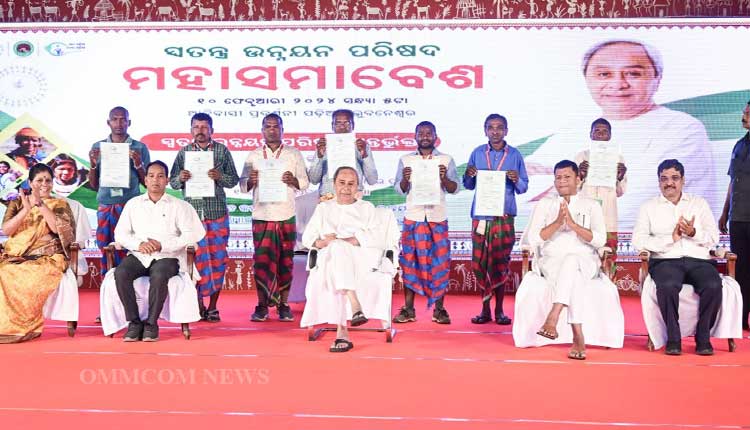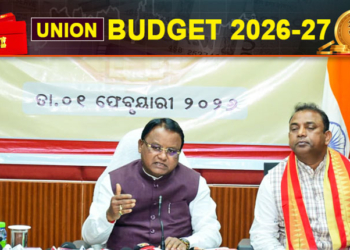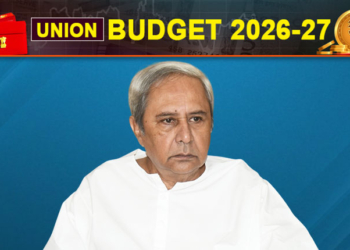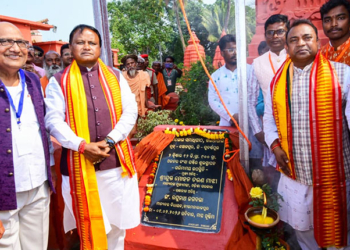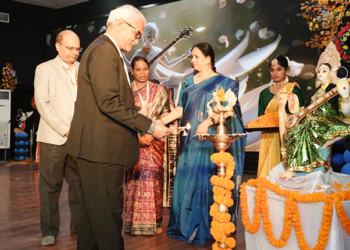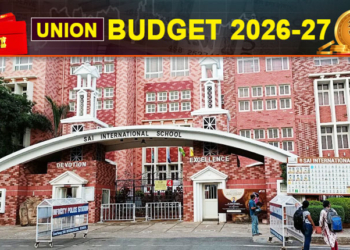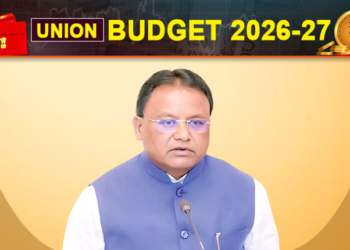Bhubaneswar: The ST & SC Development, Minorities & Backward Classes Welfare Department organised a ‘Maha Samavesh’ (grand gathering) of beneficiaries of the Special Development Councils on Saturday to celebrate public participation in the holistic development of tribal communities across the state.
In addition to 1,750 beneficiaries about 2,000 members of 23 SDCs participated in the event held at the Adivasi Exhibition Ground here to celebrate the achievements of SDCs and their unique interventions to preserve tribal culture and maintain their identity.
Inaugurating the Maha Samabesh, Chief Minister Naveen Patnaik said, “Odisha has taken this unique initiative through SDC and has earned the honour of preserving the dance, music and environment of the tribal community.”
“We have given full freedom to SDCs to fulfil the socio-cultural needs of 62 tribal communities, including 13 Particularly Vulnerable Tribal Groups (PVTGs),” the Chief Minister added.
The Chief Minister said that tribal arts and culture have enriched the overall culture of Odisha. He said that the state government will take many more steps for its conservation and propagation.
He said that more than 11,000 holy places of worship have been preserved. This is a great achievement. Apart from this, more than 600 sports and cultural festivals have been organized at the block and district level, he said.
He said that 21 bilingual dictionaries have also been prepared.
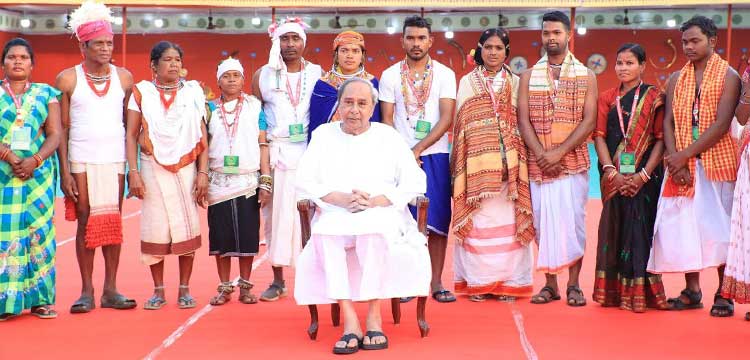
The Chief Minister inaugurated an exhibition of tribal musical instruments brought from different parts of the state and took photographs with 13 couples of PVTGs present in Odisha.
The Chief Minister felicitated Keonjhar Debahudi’s “Ho Samaj Sagan Akalaku” for its contribution towards the preservation and promotion of culture.
For the first time, the Chief Minister provided pattas for community forest rights to seven ‘Zahiras’ of Mayurbhanj.
Apart from this, the Chief Minister gave musical instruments to the members of the Koya tribal group of Malkangiri and Kutia Kandha tribal group of Kandhamal and dance costumes to the Gond tribal group of Nabarangpur.
The Chief Minister launched the ‘Mo Parikalpana’ report summarizing the steps taken on participatory governance based on discussions between the Commissioner-cum- Secretary of the Department of Scheduled Tribes & Scheduled Castes Development, Minorities and Backward Classes Welfare and community stakeholders of 112 TSP blocks.
Apart from this, the coffee table book “Sacred Groves of Tribal Odisha” prepared by the research team of the State Level Administrative Unit, the book “Swadhinata Sangram Re Odisha Ra Adivasi” by Samarendra Bhutia published by SCSTRTI, 17 MLE Primers published by SCSTRTI and 25 Soura language books translated into Odia by Rayagada SDC were unveiled by the Chief Minister.
Attending the program, Minister of Scheduled Castes and Tribes Development Department Jagannath Saraka said Odisha is the only state in the country where tribal heritage and traditions are being protected. He said that the Chief Minister has a sincere love and commitment to the arts and culture of the tribal people.
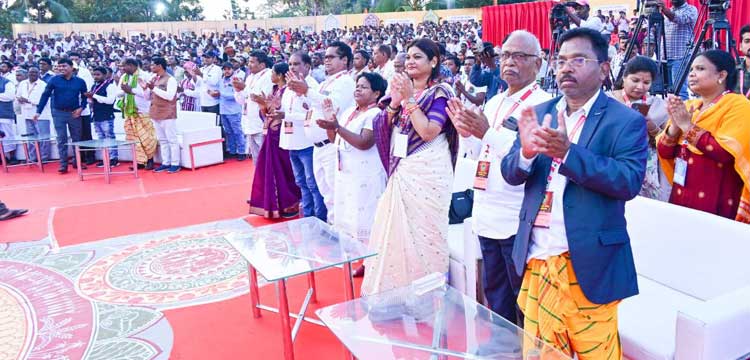
Pradeep Majhi, Adviser, Special Development Council, said that many governments in India have dreamed many dreams for the tribals. But it is in Odisha that the dream of the tribals has been fulfilled. Tribal youth today can dream big and are fulfilling it.
In her welcome speech, Departmental Secretary Roopa Roshan Sahu said that except in Odisha there is no example of giving pattas to the place of worship along with its preservation. She said that Odisha is at the forefront of the protection and strengthening of tribal rights.
Departmental Director Indramani Tripathi proposed a vote of thanks.




